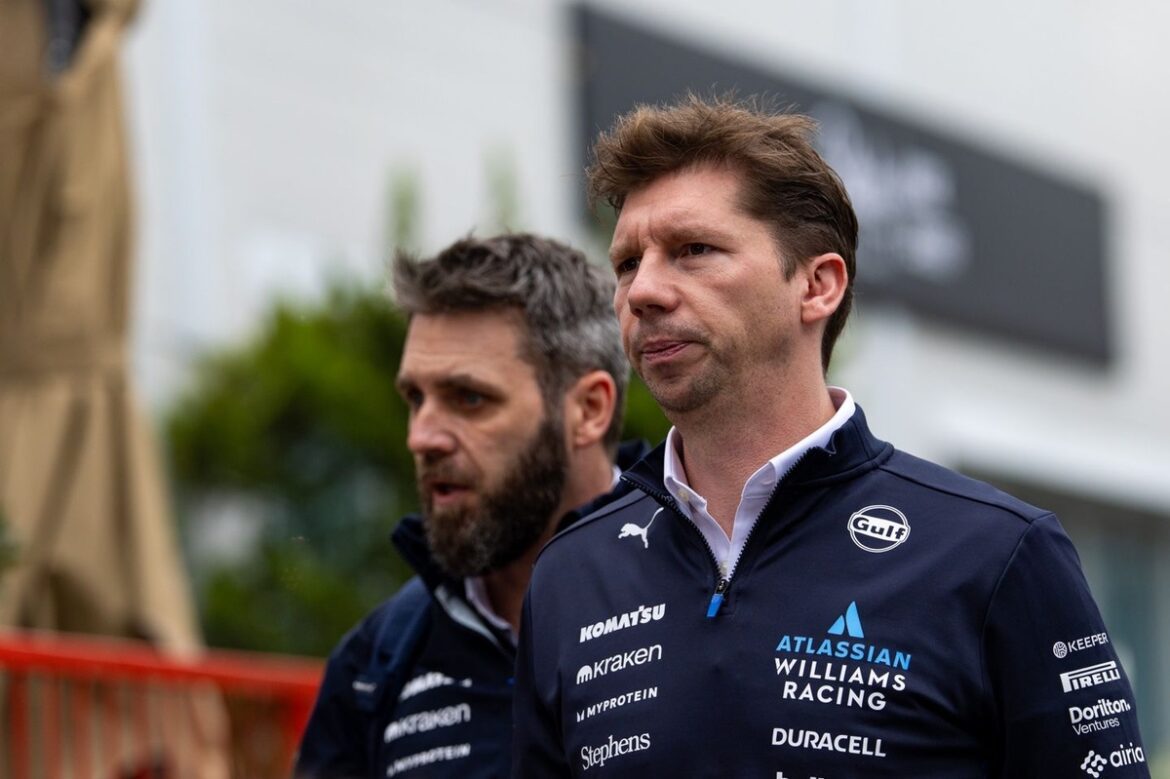Exploring Potential Changes in Formula 1 Race Weekends: Insights from James Vowles
In recent discussions surrounding the future of Formula 1, various ideas have surfaced regarding how the format of race weekends could evolve. One prominent voice in this conversation is James Vowles, the team principal of Williams Racing. Vowles has shared his thoughts on how adjustments to the race weekend schedule might enhance the viewing experience for fans and the overall dynamics of the sport.
The Current Structure of Formula 1 Race Weekends
At present, a typical Formula 1 race weekend spans three days, commencing with practice sessions on Friday, followed by qualifying on Saturday, and culminating in the main race on Sunday. While this format has been the standard for many years, there are ongoing debates about whether this structure still serves the needs of the sport and its audience effectively.
Vowles acknowledges that the current model accommodates a substantial number of races, with the calendar often featuring around 22 to 24 events each season. However, he emphasizes that the current format may be pushing the limits of what fans are willing to commit to, suggesting that dedicating nearly half a year to Formula 1 viewing could be excessive for audiences at home.
The Proposal for Two-Day Race Weekends
In his recent comments, Vowles proposes a shift to a two-day race weekend model, consisting of activities on Saturday and Sunday. This idea stems from the belief that a condensed schedule could still support a similar number of races while making the format more appealing to fans and participants alike.
Benefits of a Two-Day Weekend Format
Vowles argues that implementing two-day weekends would allow for an increase in the number of race weekends without extending the overall time commitment for viewers. By removing Friday from the schedule, the total time fans need to devote to the sport could remain consistent, even if the number of races increases.
One of the significant advantages of this proposed change is the potential for a more streamlined event. With only one hour of practice before qualifying, teams would need to adapt quickly and efficiently, leading to a more dynamic and unpredictable racing environment. Vowles believes that this could introduce greater variability in race outcomes, which might enhance spectator engagement and excitement.
Rethinking the Number of Races
While Vowles acknowledges that the current maximum of 24 races might be the upper limit for the season, he expresses openness to the idea of increasing the total number of weekends. This could be achieved by reorganizing the existing schedule and utilizing the more compact two-day format.
Commercial Considerations
From a commercial perspective, Vowles suggests that a new approach to race weekends could open up fresh avenues for revenue generation. Shortening the weekend could lead to a more intense focus on Saturday and Sunday, allowing teams and sponsors to engage with fans in innovative ways. He believes that this shift could result in a better overall product, both for the teams and the fans.
The Role of Sprint Races
Another topic of discussion in the realm of Formula 1 is the potential increase in sprint races throughout the season. Sprint races, which are shorter than traditional races and take place on Saturdays, were introduced to add excitement and provide fans with more competitive action. Vowles does not explicitly endorse or dismiss this idea but acknowledges that incorporating more sprint races could further enrich the viewing experience.
Enhancing the Competitive Landscape
The introduction of additional sprint races could significantly impact the overall competitive landscape of Formula 1. These shorter races might allow teams to experiment with strategies and setups in a way that traditional races do not permit. Consequently, fans could witness more action-packed weekends with varied outcomes, generating heightened interest and engagement.
Reverse Grid Races: A Controversial Proposal
The concept of reverse grid races, which involves starting positions being determined by the finishing order of a previous race, has sparked considerable debate within the F1 community. While some argue that this could introduce a thrilling element of unpredictability, others express concern about its potential to undermine the meritocratic nature of the sport.
Vowles does not delve deeply into this specific proposal, but his emphasis on variability and unpredictability aligns with the rationale behind considering reverse grid races. As the sport looks for ways to engage fans and maintain excitement, such proposals will undoubtedly continue to be part of the conversation.
The Future of Formula 1: Balancing Tradition and Innovation
As Formula 1 navigates its future, the balance between tradition and innovation will play a critical role in shaping the sport. Vowles’ insights highlight a growing recognition that the current structure may require reevaluation to keep pace with changing audience expectations and the evolving landscape of motorsport.
Embracing Change for the Modern Fan
The modern fan seeks a more engaging experience, often driven by the need for fast-paced entertainment and instant gratification. Therefore, changes to the race weekend format, including the potential shift to two-day events, could resonate positively with audiences who are looking for an enhanced viewing experience.
As teams and stakeholders weigh the implications of such changes, the conversation will likely continue to evolve. The desire to keep fans engaged while maintaining the sport’s integrity and competitive spirit is a delicate balance that will require careful consideration.
Conclusion
James Vowles’ perspectives on the potential adjustments to Formula 1 race weekends shed light on the ongoing discussions about the sport’s future. His advocacy for two-day weekends, combined with the exploration of additional sprint races and the idea of reverse grid formats, underscores a shared goal among many in the F1 community: to create an exciting, unpredictable, and fan-friendly racing experience.
As Formula 1 looks ahead, the willingness to embrace change and adapt to the needs of modern audiences will be crucial. Whether through revised weekend formats or innovative race structures, the sport has the opportunity to enhance its appeal and ensure that it remains a thrilling spectacle for fans around the world.
